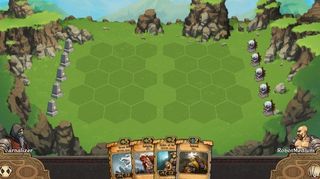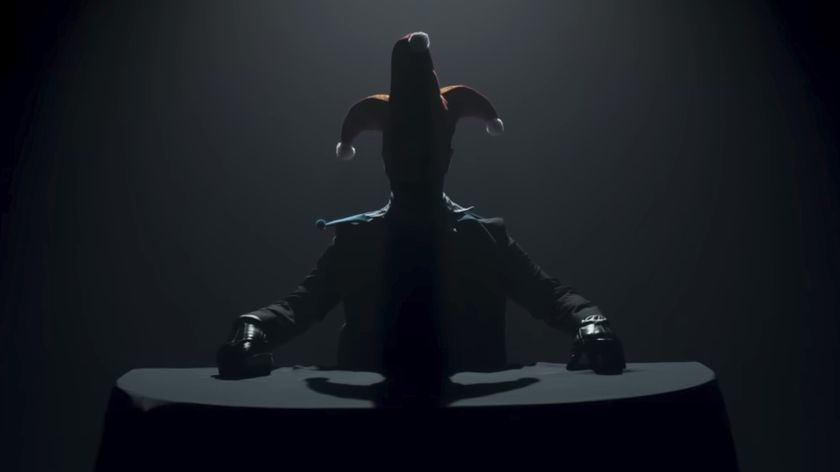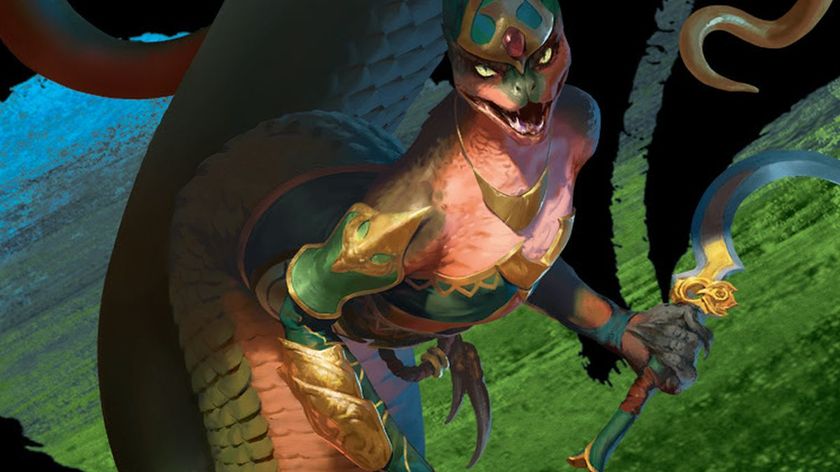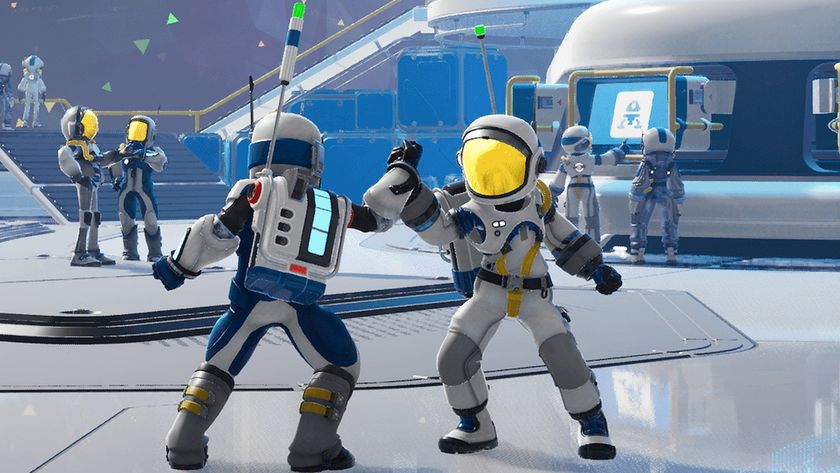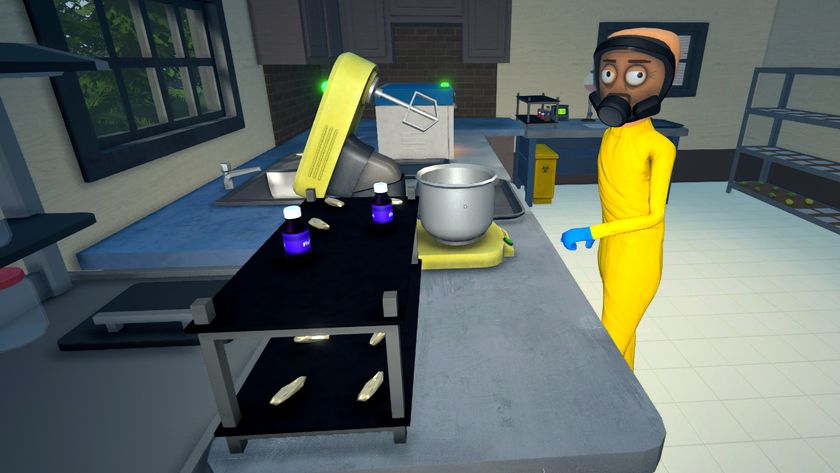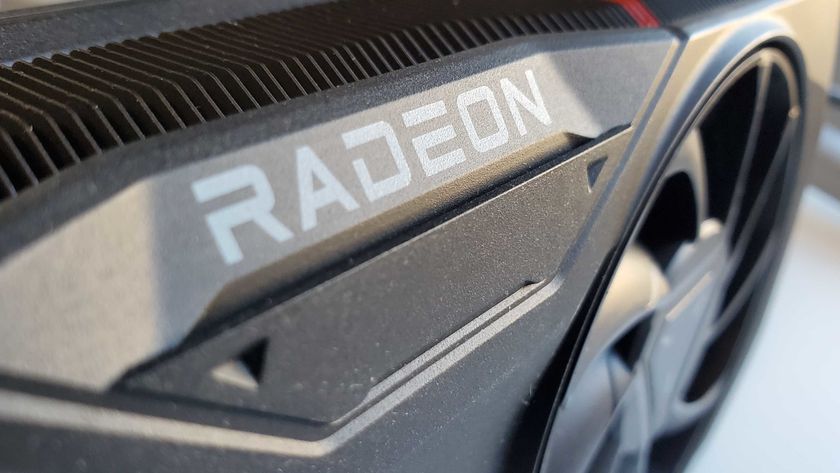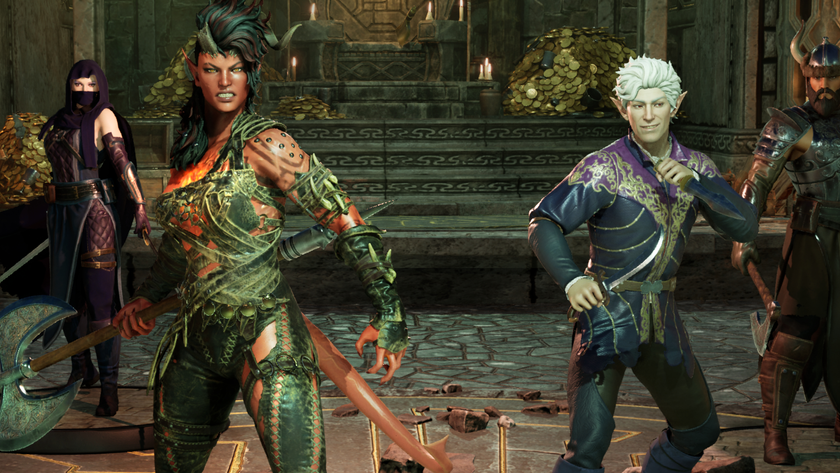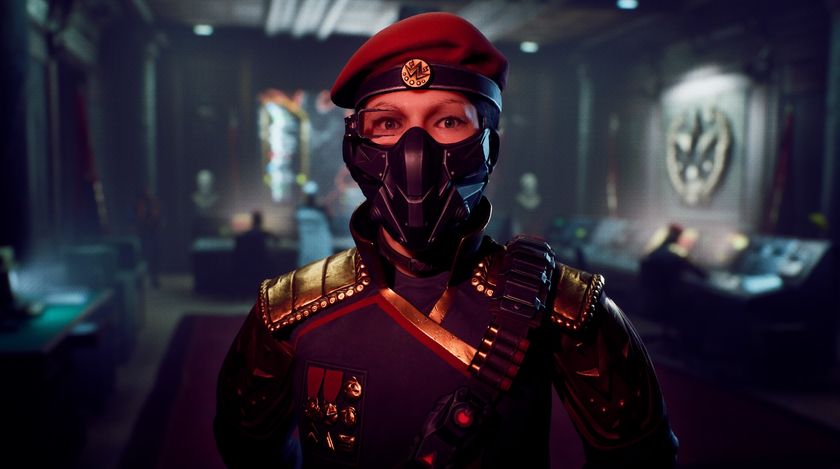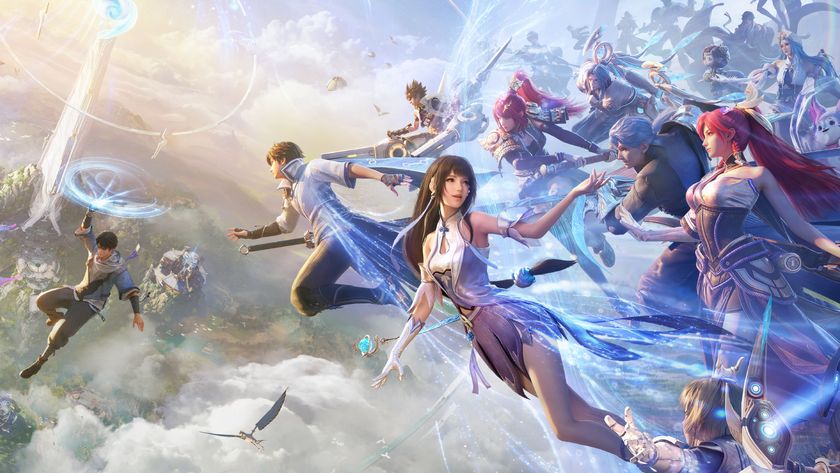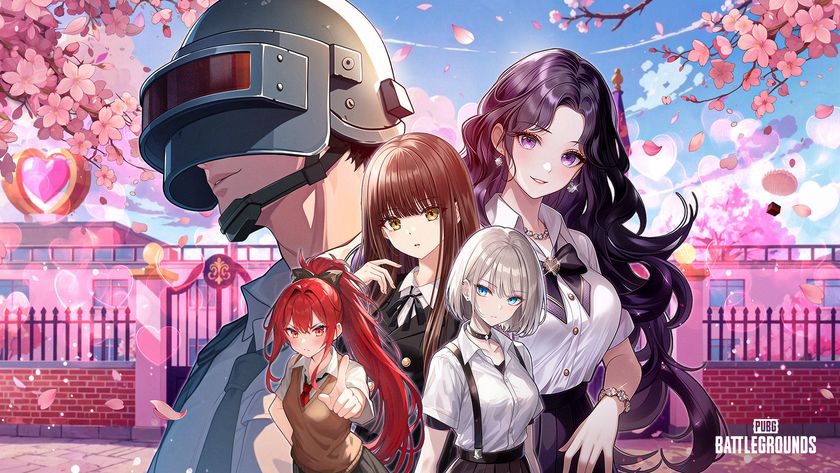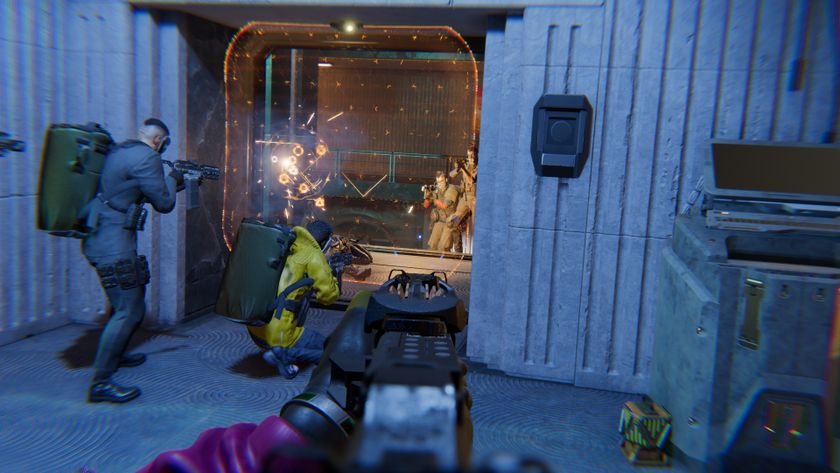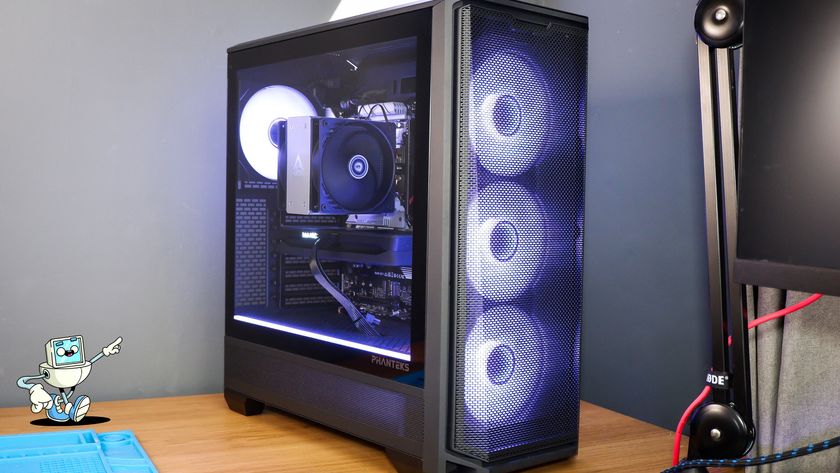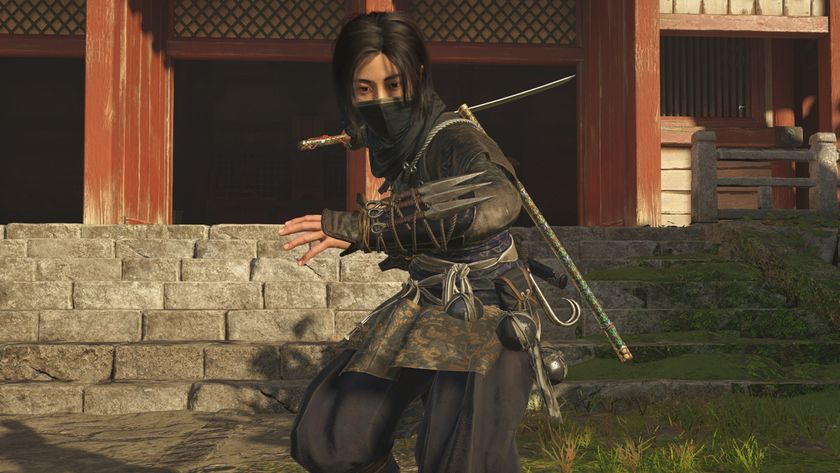Scrolls alpha: Mojang explain how the decks shake down
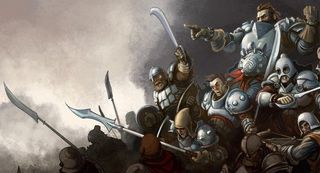
By now you've almost certainly picked up the latest copy of PC Gamer and swiped the free code for Scrolls tucked within. Plug it into your Mojang.com account and you'll have free access not just to the alpha of card-battler Scrolls, but to every subsequent revision of the game . Which is nice - particularly if you want to join the devs for a game tomorrow night .
And you should, because it's a clever thing, this Scrolls - it takes the deck-building of something like Magic: The Gathering and grafts it onto a digital boardgame, in which the positioning of your units is critical. There's a handy beginners guide over on the Scrolls' website , but below we talk to Scrolls' developers Jakob Porsér and Måns Olson to find out about the interplay between its different decks.
The principle of the game will be familiar to those who've played Magic: each turn you spend points from a resource pool to play cards in your hand. In Magic, resources are particular colours of mana, which you gather during the course of the game as you draw cards from your deck into your hand, and can only be spent to play cards of the same colour. In Scrolls the resources are, uh, resources: Energy, Growth and Order, with a soon-to-launch fourth resource detailed below.

The difference is that you can only add points to your resource pool by sacrificing one of the cards (known here as scrolls) from your hand, leading to a tense trade-off: do you axe the expensive cards and keep the weaker ones that are immediately useful to you, or do you bin the basic troops and hope to hold out until you can unleash a behemoth?
There's also another dynamic to contend with: the board itself. When you play a card, you get to physically deposit the creature it represents on a grid. The units then count down a certain number of turns until they attack (in a manner vaguely reminiscent of the excellent Capybara game, Clash of Heroes ), ploughing forward to deliver a blow to whatever lies before them: enemy troops, fortifications, or - if there are no defences in place - the idol that sits at the end of each row. Destroy three enemy idols and the game is over, so positioning becomes very important.
“Taking control of the board, not letting your opponent get a foot in the door, is so important in Scrolls,” says Jakob. “There are ways someone can turn this around, but you want to have control for as long as possible. So if you can choose whether to attack and kill one of his units, or attack and kill one of his idols, which is the game's ultimate goal focus, you probably want to go for the units most of the time just to keep him at bay.”
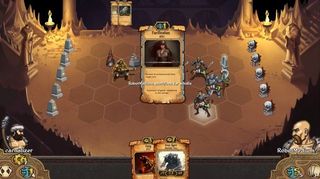
Meanwhile, as in Magic, the resources and the cards associated with them offer very different styles of play. How do they stack up?
The biggest gaming news, reviews and hardware deals
Keep up to date with the most important stories and the best deals, as picked by the PC Gamer team.
“If you want to go play a one-coloured deck then you're probably going to be exposed to certain weaknesses,” says Jakob. “If you build a multi-resource deck then you can patch up the holes better, but you will have a harder time with the resource management in the game.”
“With Growth the idea is to have lots of weak creatures initially,” says Måns. “Some of them will grow over time, using enchantments to make them stronger.”
“There's a real ramp up,” says Jakob. “You start out really slow but, as your units grow, you can get board control. The idea is to dominate the board and just keep building up your units and become overbuilt in the end. If you get the right scrolls, that is.”
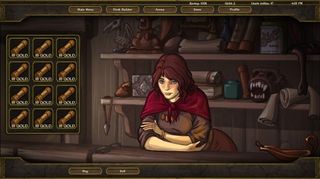
“Energy has stronger creatures from the beginning but it's a little more expensive,” says Måns.
Jakob cites Energy as his favourite single-resource deck: “I like where that is right now, because it's just mean and powerful and packs a punch. It's not very subtle, it's not very intelligent, it's just super mean. It's very aggressive. But with regards to board control, you get behind the race at the beginning. So it's kind of hard, you need to turn it around. But you can, because the units you get after a while are really big, can pack a punch.”
“Order is a slightly more manipulative resource,” says Måns. “There's various trickery you can perform with movement spells to teleport you or your enemies round the board. Order also has army traits - there's a general who will reset the countdown of units next to him to make them attack on the same turn as him.”
“I think currently the Order is one of the trickier ones,” says Jakob. “It has a lot of manipulation spells tied to it. Doesn't have a lot of big units, but it has a lot of glass cannons and tricky spells. So you'll do some damage, but it's easy to get overrun all of a sudden if you don't keep your wits about you."
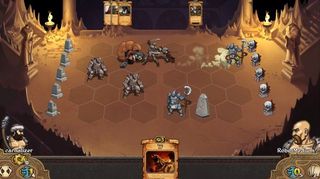
It's early days yet with much balancing to be done, and one of the proper tests of this is in how well the resources work in combination with one another. Måns has been experimenting with a Growth/Order deck. I ask him if he's found a winning strategy.
“It's a very new deck, so I'm not sure I've found the best use for it,” he says, “but we have a creature which costs five Growth, called the Kinfolk Veteran. He has haste, which means he attacks the moment he comes onto the playing field and also a relatively high attack value, and you can combine that with a relatively cheap Order spell called focus - and then that spell gives him a temporary buff to his attack power. So for a relatively low mana value get a unit on the board which attacks for six damage the same turn, and basically kills any unit that's in front of him, and then stay on the board as a strong unit. But it's such a specific combination it's not something you can count on.”
And what about that mysterious fourth resource?
“We're actually working on it right now,” says Jakob. “I don't know how much we are talking about it, but it's going to be very mean in its own way. It's going to be very evil, it's going to be very dark - oriented around death and the death of your units. The decay of your own board can actually help you. So I think it's going to introduce a new way of playing the game.”
Let us know in the comments how you get on with the alpha, and any cool strategies you discover.
